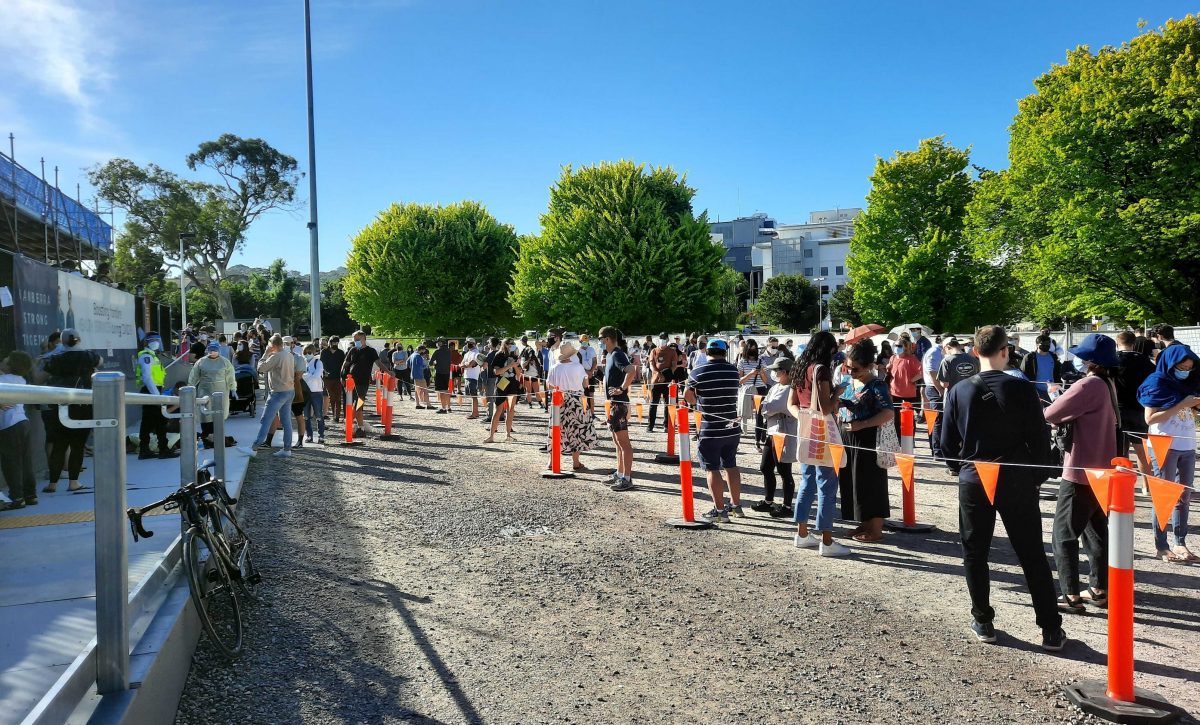
Last Christmas thousands of Canberrans got caught up as close contacts ahead of the big day. Photo: Ian Bushnell.
COVID-19 cases in the Territory have jumped by 25, 30 and then 20 per cent in the past three weeks.
Those figures prompted health authorities to warn that this is another pandemic wave, being driven by the spread of subvariants.
The significance of these new virus strains isn’t yet truly known or understood.
But Health Minister Rachel Stephen-Smith has already urged people to start thinking about their behaviour in the lead-up to silly season and potentially thinking about holding parties outside rather than indoors.
That’s echoed by Australian National University infectious diseases expert Professor Peter Collignon, who said it wasn’t yet time to do anything more.
“For the next five to 10 years, we’re going to have new waves. Sometimes they are bigger because when there’s lots of publicity, people get tested more,” he said.
“The real test is hospitalisations and deaths.”
So while wearing masks and hosting outdoor barbecues in place of dinners indoors with friends is a good idea, he said major public health interventions weren’t appropriate anymore.
That’s because people are much less likely to die or contract a serious disease than they were two years ago.
“This is here and it’s not going to go away. It’s about minimising risk without undue social and economic hardship,” he explained.
“Are we going to close all bars, restaurants and clubs?”
Professor Collignon is anticipating this wave or “wavelet” has already started to peak and that caseloads will start falling again ahead of Christmas Day.
He expects the next big peak will happen next winter but predicting this has always proved tricky.
“The waves around last January and February were much bigger than I or anyone else was predicting,” he said.
“We had 95 per cent of adults vaccinated but the reality is vaccination seems to be much less effective at preventing mild disease as we expected. But they are very effective at stopping you from dying and getting seriously ill.”
Professor of Epidemiology at the University of South Australia Adrian Esterman agreed that it’s hard to model at the moment for a number of reasons.
“The first is that we have a mix of subvariants at the moment … each has the ability to evade our immune systems but at different levels and we don’t know what they are yet,” he said.
Professor Esterman said the other issue was how varied the population was – referring to some who have never been infected, some who’ve had COVID-19 once, some who’ve had it multiple times, as well as varied vaccination statuses.
“It takes a very brave person to model that,” he said.
Like his Canberra colleague, Professor Esterman is clear that it’s not time for major public health interventions.
“Most people don’t care. They are over it and that’s fair enough … they have to take their own risk,” he said.
“But if you’re vulnerable or you’ve got vulnerable parents, that’s a totally different story.”
His advice – for those who want it – is to wear masks when out in crowds and have partygoers complete a rapid antigen test before a party.
“What we are seeing, which is optimistic, is that each wave is getting lower and lower,” Professor Esterman said.
“We’re also seeing some evidence these newer subvariants are less severe.”
But Professor Esterman acknowledged the pandemic so far has produced outcomes no one expected.













